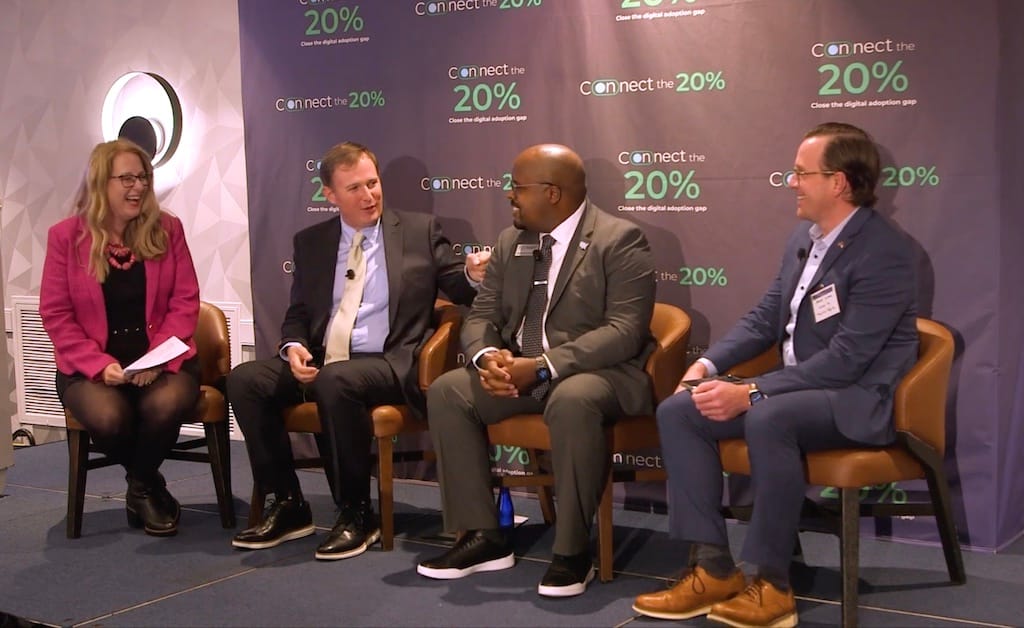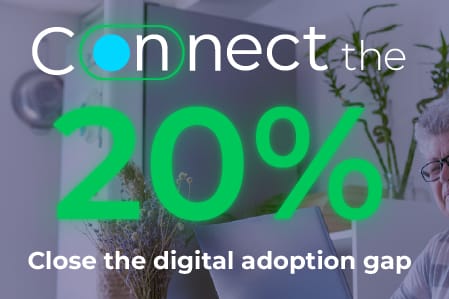Connect20 Summit: Partnerships are Key for Digital Equity Efforts
State broadband offices should look to local organizations for digital equity efforts, panelists said.
Jake Neenan

WASHINGTON, November 17, 2023 – Partnerships between local organizations and state governments will be essential for successful digital adoption programs, experts said on Tuesday.
 Broadband BreakfastBroadband Breakfast
Broadband BreakfastBroadband Breakfast
“We need the rock stars in our state or in our region to tell us what they’ve been working on and how they feel that they could participate if they were given a grant for something, or if they had the opportunity to build their program,” said Thomas Tyler, deputy director of the Louisiana broadband office.
His state received more than $1.3 billion for broadband expansion from the Broadband Equity, Access and Deployment program, which he said would likely be enough to connect the state’s un- and underserved populations. The state is looking to put their leftover funds toward digital equity work, efforts to ensure people can use and afford their newly accessible broadband.
He spoke at the Connect20 Summit, an event aimed at facilitating conversations between digital navigators and policymakers as BEAD and digital equity funds get closer to flowing.
Organizations doing digital equity work will be able to apply for non-deployment grants under the program, or grants not used for building new infrastructure.
Bruce Clark, executive director at the Queen’s University of Charlotte’s Center for Digital Equity, said his organization is already working on efforts with North Carolina’s state government and private sector partners.
He said the center is working with the state’s Department of Adult and Aging Services to create a “digital health navigator” program in the state, a program for digital navigators to help people across North Carolina use broadband to access healthcare.
“We’re hoping to deploy that in the next 12 months,” he said.
To stay involved with the Digital Navigator movement, sign up at the Connect20 Summit.









Member discussion